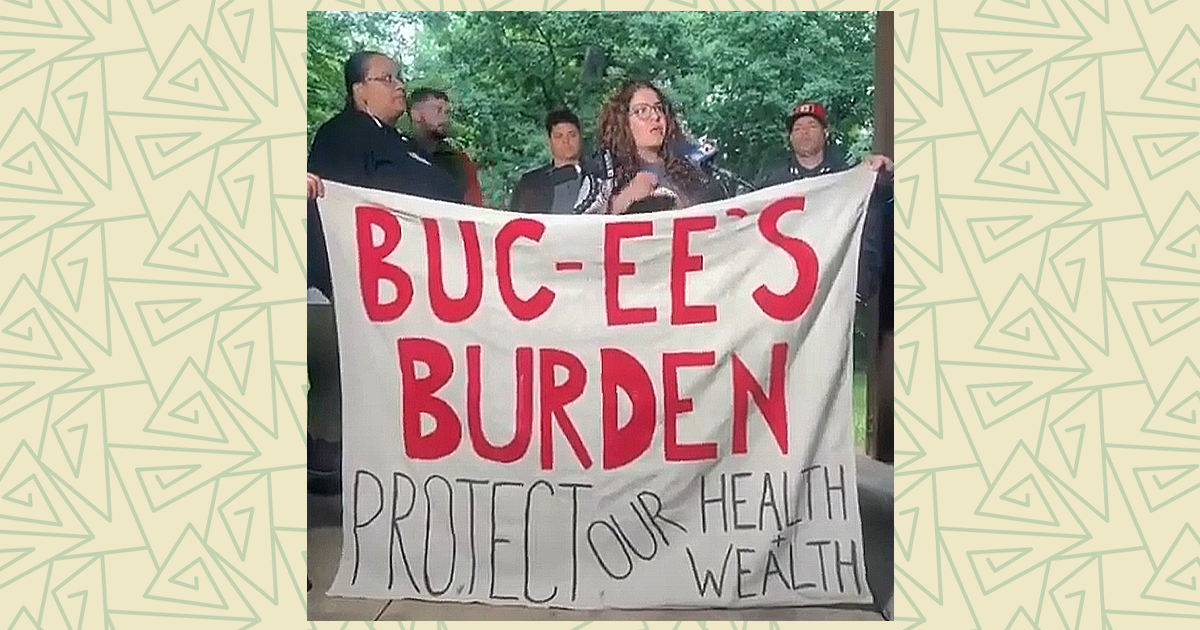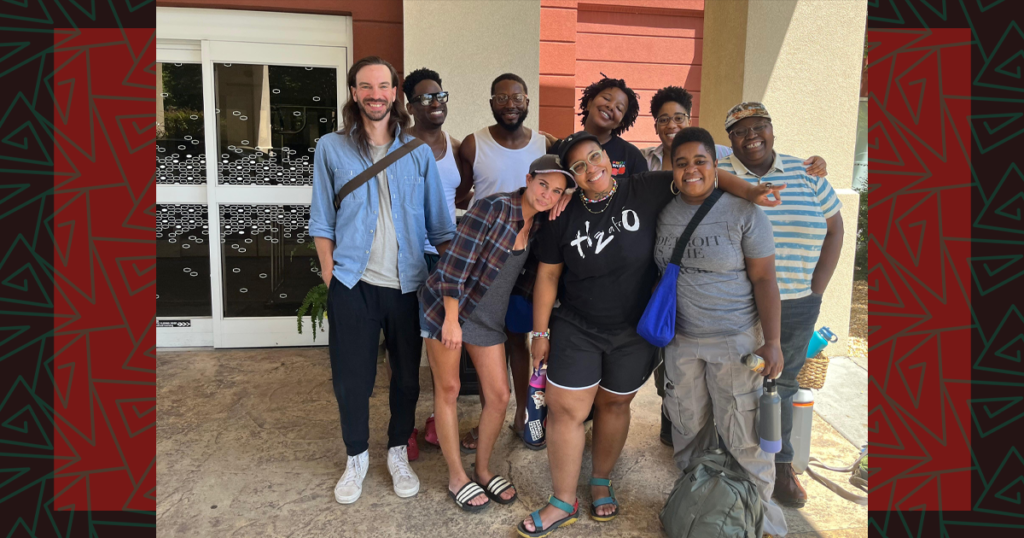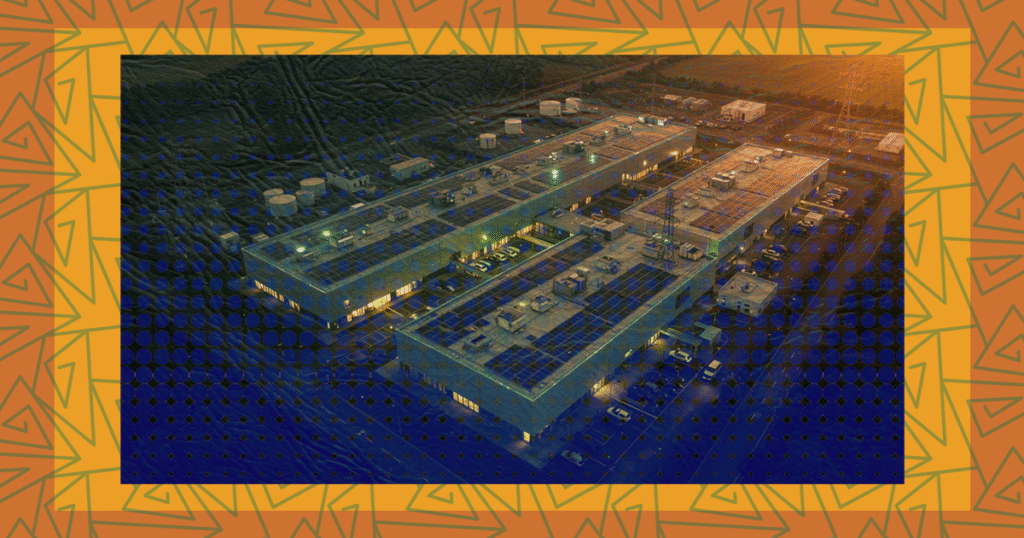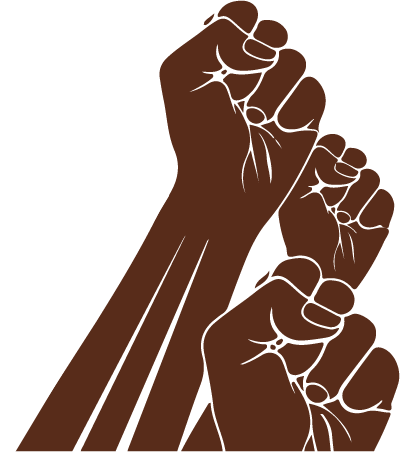Good morning, and thank you for being here. My name is Rania Masri, co director of the NCEJN.
This report that you see before you is a consequence of a strategic meeting that NCEJN and 7 Directions of Service held back in February of last year.
From that meeting, we realized that there was a dire need for an investigative report on gas stations.
We reached out to Sue Sturgis who provided us with an outline, and then we reached out to Lewis Raven Wallace, an investigative journalist.
Today, we launch that report, a report that pulls back the curtain on a growing threat to our communities: “Buc-ee’s Burden: How Mega Gas Stations Hurt Community Health and Wealth.” This is more than a story about a gas station — it’s a story about public health, environmental justice, and the true cost of unchecked corporate development.
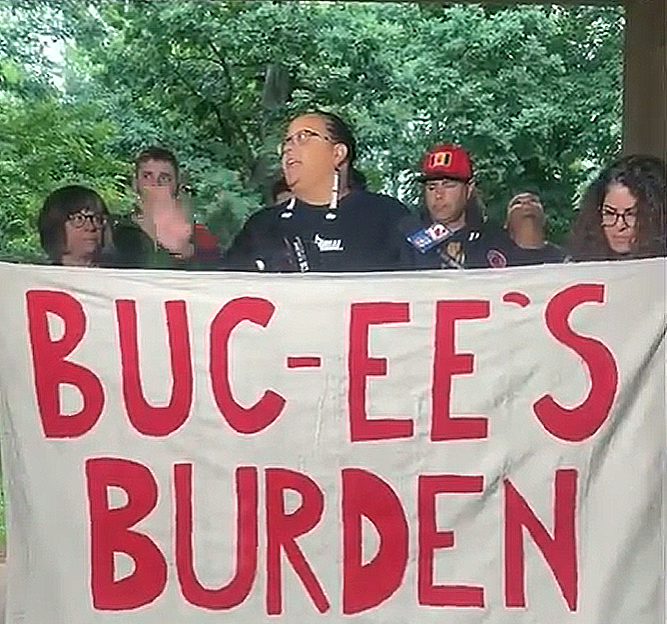
Let’s begin with the science. Mega gas stations like Buc-ee’s are not just roadside stops — they are sources of toxic pollution. Benzene, a known carcinogen, is one of several chemicals released through routine venting at gas stations. Just refueling your car causes an 18-fold increase in benzene exposure. Workers are exposed to dangerous levels for hours each day. And studies show benzene levels remain hazardous over 500 feet from the pump — putting neighboring homes, parks, and schools at risk.
The proposed Buc-ee’s in Mebane, North Carolina, would bring up to 2,000 cars per hour, significantly increasing local air pollution. This isn’t just an inconvenience — it’s a public health crisis. Air pollution from gas stations and idling cars contributes to asthma, heart disease, and even premature death.
And it doesn’t stop with the air. Underground fuel tanks — even the modern ones Buc-ee’s touts — leak. The EPA has documented over 577,000 leaks nationally. In North Carolina alone, we have a backlog of over 5,000 leak cleanups, totaling $800 million — and most of that will be paid by taxpayers, not the companies that caused the damage. In Mebane, there are already 13 known leaks within a mile of the proposed site, including several directly across the street.
On the economic front, the promise of “good jobs” from Buc-ee’s is misleading. They tout $15 an hour — but the living wage in Alamance County is over $20 for a single adult, and over $50 for a single parent of three. What’s more, Buc-ee’s has a reputation for punishing workplace practices and high turnover. Their contracts have even been compared to “indentured servitude” by a Texas court.
And while property near gas stations may initially rise in value, over time, homes within 800 feet can lose 30 to 50 percent of their value — especially if contamination occurs. Across the country, half of all brownfield sites are abandoned, contaminated gas stations.
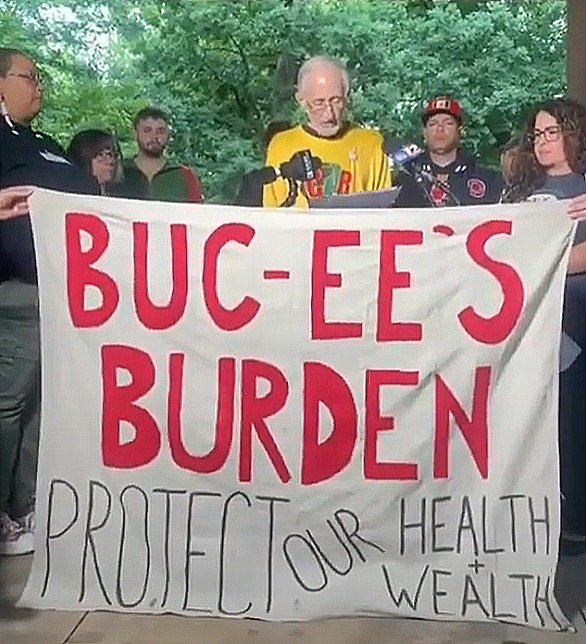
Meanwhile, Buc-ee’s receives generous subsidies. In Texas alone, they’ve gotten at least 13 public grants. Here in North Carolina, Buc-ee’s will benefit from $12 million in public infrastructure investment — and they’ll only pay a fraction of the cost of the new $38.7 million highway interchange that will serve them.
But this is also a story of resistance.
In nearby Efland, community organizing stopped a Buc-ee’s project in 2022. In Mebane, a coalition of residents, scientists, and Indigenous leaders are speaking out. The proposed Buc-ee’s would pave over part of the historic Occaneechi Trading Path — sacred ground now recognized by the World Monuments Fund.
We don’t need more toxic infrastructure. We need clean water, breathable air, and communities where health and dignity are non-negotiable.
This report calls on all of us — residents, leaders, and policymakers — to protect our people, to say no to environmental racism, and to build a future that truly serves the public good and not the corporate profit.
Thank you.
